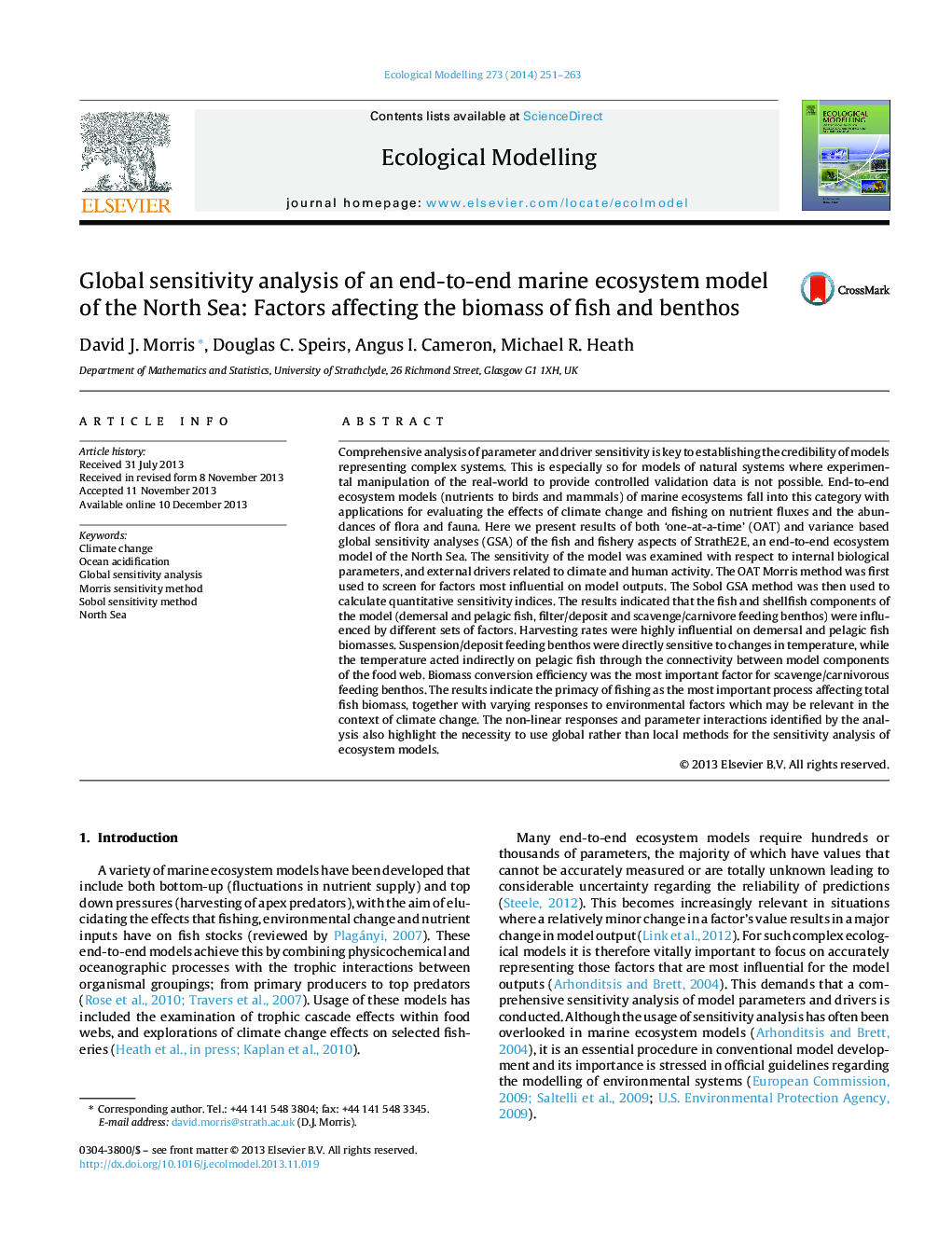| کد مقاله | کد نشریه | سال انتشار | مقاله انگلیسی | نسخه تمام متن |
|---|---|---|---|---|
| 6296954 | 1617473 | 2014 | 13 صفحه PDF | دانلود رایگان |
عنوان انگلیسی مقاله ISI
Global sensitivity analysis of an end-to-end marine ecosystem model of the North Sea: Factors affecting the biomass of fish and benthos
ترجمه فارسی عنوان
تجزیه و تحلیل حساسیت جهانی مدل پایه و پایانی سیستم اکوسیستم دریایی دریای شمال: عوامل موثر بر زیست توده ماهی و بتوز
دانلود مقاله + سفارش ترجمه
دانلود مقاله ISI انگلیسی
رایگان برای ایرانیان
کلمات کلیدی
تغییر آب و هوا، اسیدزدایی اقیانوس، تجزیه و تحلیل حساسیت جهانی، روش حساسیت مورس، روش حساسیت سوبل، دریای شمال،
موضوعات مرتبط
علوم زیستی و بیوفناوری
علوم کشاورزی و بیولوژیک
بوم شناسی، تکامل، رفتار و سامانه شناسی
چکیده انگلیسی
Comprehensive analysis of parameter and driver sensitivity is key to establishing the credibility of models representing complex systems. This is especially so for models of natural systems where experimental manipulation of the real-world to provide controlled validation data is not possible. End-to-end ecosystem models (nutrients to birds and mammals) of marine ecosystems fall into this category with applications for evaluating the effects of climate change and fishing on nutrient fluxes and the abundances of flora and fauna. Here we present results of both 'one-at-a-time' (OAT) and variance based global sensitivity analyses (GSA) of the fish and fishery aspects of StrathE2E, an end-to-end ecosystem model of the North Sea. The sensitivity of the model was examined with respect to internal biological parameters, and external drivers related to climate and human activity. The OAT Morris method was first used to screen for factors most influential on model outputs. The Sobol GSA method was then used to calculate quantitative sensitivity indices. The results indicated that the fish and shellfish components of the model (demersal and pelagic fish, filter/deposit and scavenge/carnivore feeding benthos) were influenced by different sets of factors. Harvesting rates were highly influential on demersal and pelagic fish biomasses. Suspension/deposit feeding benthos were directly sensitive to changes in temperature, while the temperature acted indirectly on pelagic fish through the connectivity between model components of the food web. Biomass conversion efficiency was the most important factor for scavenge/carnivorous feeding benthos. The results indicate the primacy of fishing as the most important process affecting total fish biomass, together with varying responses to environmental factors which may be relevant in the context of climate change. The non-linear responses and parameter interactions identified by the analysis also highlight the necessity to use global rather than local methods for the sensitivity analysis of ecosystem models.
ناشر
Database: Elsevier - ScienceDirect (ساینس دایرکت)
Journal: Ecological Modelling - Volume 273, 10 February 2014, Pages 251-263
Journal: Ecological Modelling - Volume 273, 10 February 2014, Pages 251-263
نویسندگان
David J. Morris, Douglas C. Speirs, Angus I. Cameron, Michael R. Heath,
